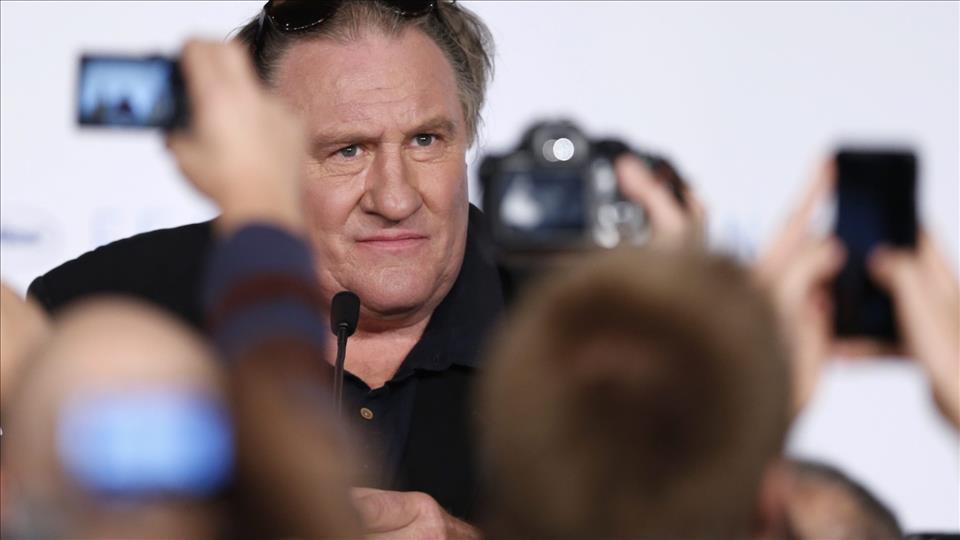
Explainer: Swiss Television's Blacklisting Of Gérard Depardieu
- Share Facebook Twitter E-mail Print Copy link
Who is Gérard Depardieu?
Born in poverty in 1948, Gérard Depardieu is one of the most prolific and successful French film actors ever, appearing in more than 200 films, usually as the lead. He is probably best known outside France for his starring roles in Cyrano de Bergerac (1990), Green Card (1991) and as Obelix in the Asterix films (1999-2012).
He has been appointed a Chevalier of the Légion d'honneur, the highest French order of merit, and Chevalier of the Ordre national du Mérite, awarded by the French president. He also has citizenship of Russia and the United Arab Emirates.
Off screen, Depardieu owns various wine estates and restaurants – and his excesses involving alcohol have resulted in various incidents and road accidents. Negative headlines involving his behaviour include“Depardieu 'apologises' for publicly urinating on jetExternal link”.
Many women have accused Depardieu of sexual violence. In 2018, actress Charlotte Arnould sued him for rape; the case has been under investigation since 2020. Another lawsuit against him for sexual abuse has been ongoing since mid-September, regarding an alleged 2007 incident. Depardieu denies the allegations.
Why's he in the news now?
On December 7, his reputation took another blow when French television channel France 2 broadcast a documentary, Gérard Depardieu: The Fall of the OgreExternal link , in which the actor made comments widely considered to be misogynistic and obscene , including about a ten-year-old girl, and sexually harassed a translator.
On December 31, Switzerland's French-language public television channel, RTS, confirmed media reports saying it would no longer show any films starring Depardieu, following the lead of some Belgian, French and Canadian channels.
This“pragmatic” decision would be re-evaluated depending on how the situation evolved, an RTS spokesperson said. He explained that a film would be selectively removed from the schedule if“we have the feeling that the majority of the audience could feel offended by a work or a personality”. This could happen even if the courts have not yet delivered a verdict, he said. In February 2023 RTS made a similar decision concerning French comedian Pierre Palmade, who caused an accident while driving under the influence of cocaine in which three people were seriously injured.
On Saturday, RTS's German-language counterpart, SRF, said it was following the situation and would take a decision on films featuring Depardieu on a case-by-case basis. It said it had shown Le Dernier Métro (The Last Metro), starring Depardieu and Catherine Deneuve, on December 29, but no films with the actor were currently scheduled.
What was the reaction to the documentary ?
French Culture Minister Rima Abdul Malak said Depardieu's comments were“disgusting” and that his behaviour was a“disgrace to France”. The actor was stripped of the National Order of Quebec and his waxwork was taken out of the Grévin Museum in Paris.
However, on December 20 French President Emmanuel Macron, publicly a big fan of Depardieu, waded into the controversy.“You will never see me taking part in a manhunt,” he said during a wide-ranging interview on French television. What did he think of Rima Abdul Malak's moves to strip Depardieu of the Légion d'honneur ?“The order of the Légion d'honneur is not a moral order,” he declared, adding that his culture minister had“got ahead of herself”. Depardieu, after all,“had made France proud”.
Then on December 25 French newspaper Le Figaro published a letterExternal link signed by more than 50 names in the French film and music industry – many from Depardieu's generation – who deplored the“lynching” and“torrent of hatred” against the“last sacred monster of cinema”.“When Gérard Depardieu is attacked in this way, it is art that is under attack,” they wrote.
Cue a backlash to the backlash.“Oh, it's all right, it's Gérard! How many times has this phrase been hurled at women who have been attacked, humiliated, told to smile and keep quiet?” wrote Maud VergnolExternal link in L'Humanité.“As if being the 'sacred monster' of French cinema offered a passport to impunity or conferred a right to obscenity.”

Legal Disclaimer:
MENAFN provides the
information “as is” without warranty of any kind. We do not accept
any responsibility or liability for the accuracy, content, images,
videos, licenses, completeness, legality, or reliability of the information
contained in this article. If you have any complaints or copyright
issues related to this article, kindly contact the provider above.


















Comments
No comment